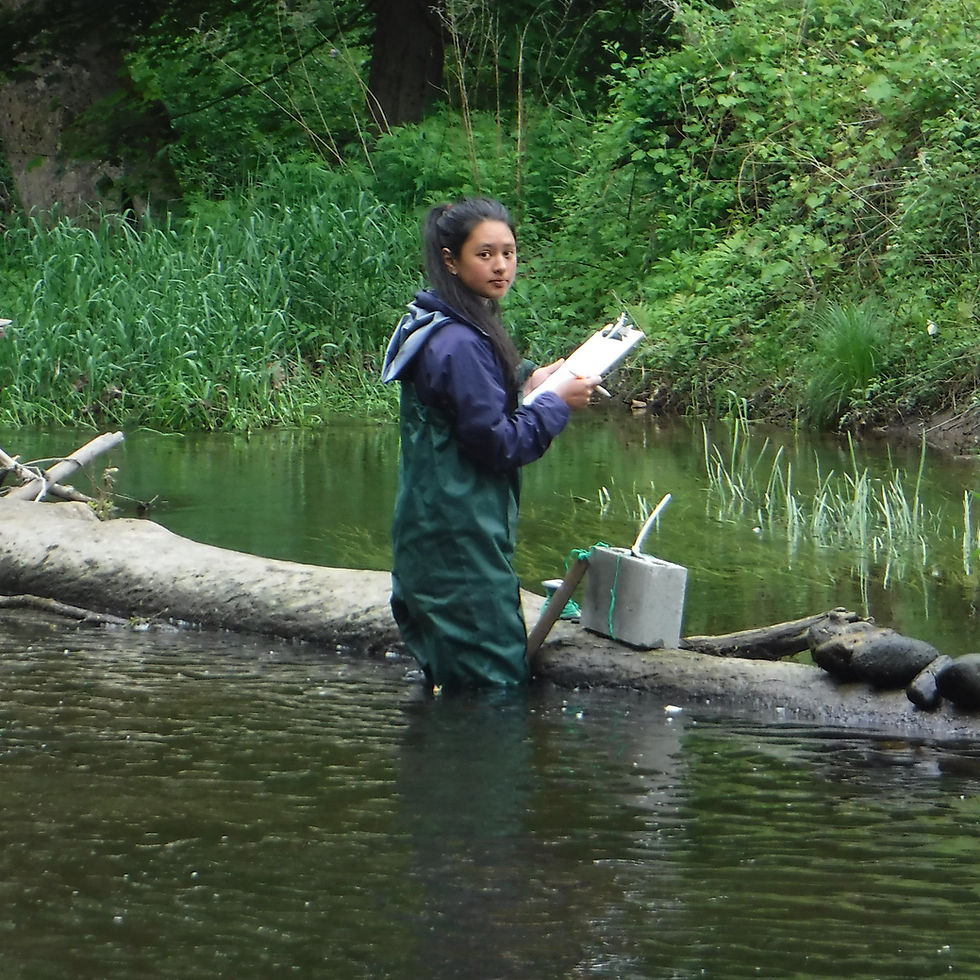Show Them the River Essay and Photos by Josephine Purdy
- Nov 17, 2017
- 3 min read
Updated: Nov 24, 2020
Nearing the end of my bachelor degree, I was desperately searching for a summer job in my field. I first heard “Show them the river” during an internship interview with the Pomperaug River Watershed Coalition. Nervously answering and asking questions through my interview, I brushed past this simple phrase. It would take me an entire summer to truly appreciate the importance and simplicity of bringing people to the river. During my interview with this Woodbury CT watershed coalition, I learned the tools I would use included scientific research, public outreach and coalition building. I eagerly accepted their Dr. Marc J. Taylor Summer Internship, created in honor of the co-founder of this small non-profit that protects and preserves the Pomperaug River Basin. “Show them the river,” was Dr. Taylor’s mantra.
On the first day, they almost literally threw me into the job. My supervisor taught me how to place thermal monitoring probes at various points in the river. I was to record water temperatures every hour from June until mid-October. I donned a pair of waders and slipped my way through various streams and rivers to properly place our probes. Being out on the river made me remember the childhood joys of jumping from rock to rock across a river; catching crayfish; and simply being in the water. I regained my appreciation of Connecticut rivers and couldn’t have hoped for a better ‘first day on a new job.’
One of my favorite projects was helping organize and co-lead free hikes along the river and in the watershed. We led scenic walks, talking about the ecological and cultural history of the river, current issues of pollution and river use, and environmental lifestyle changes that anyone could make.
I found great purpose and joy in answering questions. I asked my own questions to those more knowledgeable and saw people leave with a new understanding and appreciation of their watershed. I began to realize that the core purpose of these hikes was to “show people the river.”
I’ve had a month to reflect on my internship with this small ‘grassroots’ non-profit. I realize I’ve learned a number of important lessons that I think will be useful in my career. I’ve been taught these lessons before; but they took on a new meaning and importance after seeing them in action.
Money is important. Selling an organization to donors and sponsors is a huge and unavoidable part of the nonprofit world. While it can be discouraging when your time and energy has to go towards finding funds instead of accomplishing the goals of the nonprofit, it’s necessary and can be enjoyable, even if it’s not my strength.
People can tell when you really believe in a cause. Passion and knowledge are infectious, and they are the driving force behind getting things done. Effectively communicating the importance of your work inspires others.
Connecting with people makes a difference. I saw strong personal relationships and mutual respect get more things done this summer than anything else.
Nothing compares to simply letting people experience the river, lake or forest if your goal is to foster appreciation.
Small nonprofits are born when communities care. They become successful when communities understand the importance and experience the joy of protecting and conserving their own natural resources.

ABOUT THE AUTHOR: Josephine Purdy, now 20, grew up in Bridgewater CT, with a hiatus in Kodaikanal, India. She currently resides in Montreal, Canada. Her lifelong love for the outdoors came after the family TV met an untimely fate during her early, formative years. She will enter her final year at McGill University September, 2017, to study environmental biology with a major focus in wildlife biology and a minor in field studies. Her recent summers, before the one described above, have been spent working on an organic vegetable farm.
In January, 2018, Josephine will depart on a field semester to Kenya, Uganda and Tanzania. Once she runs out of funds for her travels, she hopes to start a career that blends environmental sciences, sustainable development and conservation. Graduate studies are most certainly somewhere in her future. Her favorite activities include catching insects, exploring new places, making curries, and camping – especially with friends.









